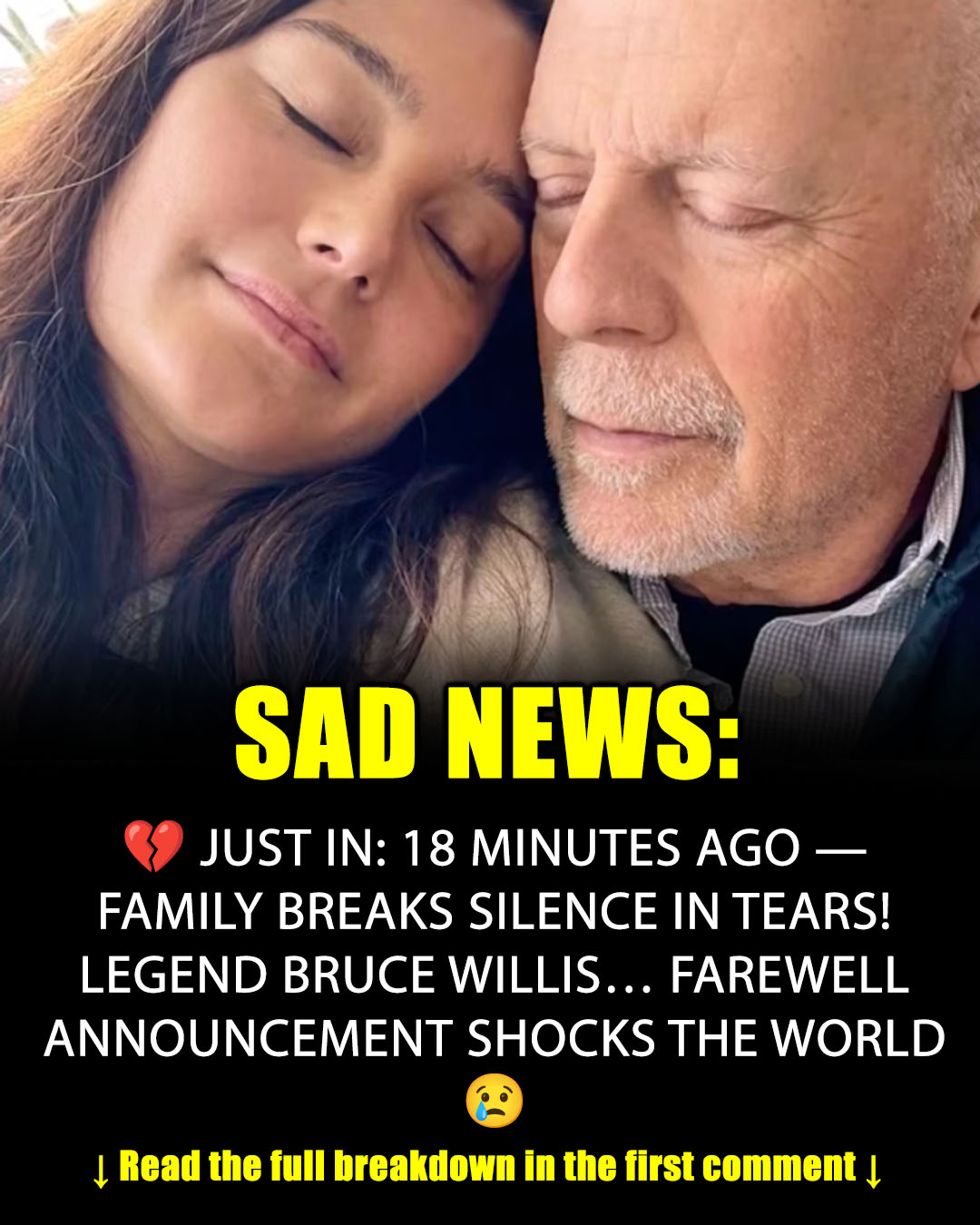At seventy years old, Bruce Willis remains one of Hollywood’s most recognizable figures. His decades-long career has given audiences unforgettable performances in films like Die Hard, The Sixth Sense, and Pulp Fiction. Yet today, instead of commanding movie sets, he faces a deeply personal battle: frontotemporal dementia (FTD), a degenerative condition that has gradually stolen his memory and ability to speak. Recently, his wife, Emma Heming Willis, 47, made the heartbreaking decision to move him into a specialized care facility—a choice she described as one of the most difficult of her life.
In a touching ABC interview, Emma explained that while Bruce remains physically strong and active, his ability to communicate is steadily fading. “It’s his brain that’s failing,” she said with sorrow. “The language is disappearing.” For a man whose presence and voice once carried entire films, this loss is devastating—not just for Bruce, but for everyone who loves him.
Despite the heartbreak, Emma emphasized that the care home is not a place of sadness, but one of love, safety, and dignity. Trained staff provide round-the-clock support, while the family ensures he is never isolated. Their daughters, 13-year-old Mabel and 11-year-old Evelyn, visit often, sharing meals, watching movies, and finding new ways to connect with their father—even without words. “There’s still laughter in that home, still warmth,” Emma said. “We are making sure Bruce feels surrounded by love.”
The decision to move him into specialized care was not taken lightly. For months, Emma had managed his care at home, determined to keep the family together. But as Bruce’s condition progressed, she realized he needed full-time medical attention that she alone could not provide. “This wasn’t about giving up on him—it was about honoring him,” she said. “I know Bruce would have wanted this, especially for our girls: to know their father is safe, cared for, and still able to share joy with us.”
Frontotemporal dementia is a cruel illness that gradually erodes language and behavior, while physical strength often remains intact in the early stages. Families often describe it as watching a loved one slowly fade while still standing before them. For Emma, moving from denial to acceptance was a painful process. “At first, I thought love and determination would be enough,” she admitted. “But dementia doesn’t work like that. It demands more than any one person can give.”
The Willis family has received an outpouring of support from fans, friends, and colleagues across Hollywood. Actors and directors who have shared the screen with Bruce have sent messages of encouragement, praising Emma’s strength and dedication. Many have noted that her openness about his illness helps reduce the stigma around dementia and gives other families permission to seek help.
Emma often speaks about how their daughters are coping. Though young, Mabel and Evelyn show remarkable resilience. “They understand in their own way,” she said. “They see that Daddy isn’t like other dads anymore, but they also know he’s still here, still loving them in every way he can.” The girls have learned to communicate through touch, shared activities, and simply being present. Sometimes, Emma says, a smile or a squeeze of the hand conveys more than words ever could.
What makes this story resonate worldwide is not only the tragedy of a beloved actor’s illness, but the courage of a family choosing love over despair. Emma has transformed a heartbreaking situation into one of grace and openness. She admits she cries often, but she also insists that moments of joy remain. “You can still live a meaningful life with dementia,” she said. “It may not look the way you imagined, but love doesn’t disappear just because memory does.”
Bruce’s care facility is designed to feel more like a community than an institution. Friends visit often, bringing photos, memories, and music. A close friend recently played old jazz records, and Bruce’s face lit up with recognition. “The music brought him back, even if only for a moment,” Emma said. “Those moments are treasures.”
As the family adapts to this new reality, Emma has found purpose in sharing their journey publicly. She hopes to raise awareness not only about frontotemporal dementia, but also about the challenges caregivers face. “We need to stop pretending that one person can handle this alone,” she said. “It takes a network, resources, and honesty about how incredibly hard it really is.”
For Bruce Willis fans, the news is bittersweet. They mourn the decline of a man whose characters once embodied strength and wit, but they also see the same qualities reflected in his family’s unwavering devotion. Emma has become a symbol of courage, showing that true love is not about holding onto what was, but about adapting and cherishing what remains.
“Bruce has taught me strength in a thousand ways over the years,” she reflected. “Now it’s my turn to be strong for him.”
As Bruce spends this chapter of his life surrounded by care, laughter, and the devotion of his family, Emma wants the world to remember one thing: “He may not have his words, but he still has his spirit. And we will honor that spirit every single day.”
